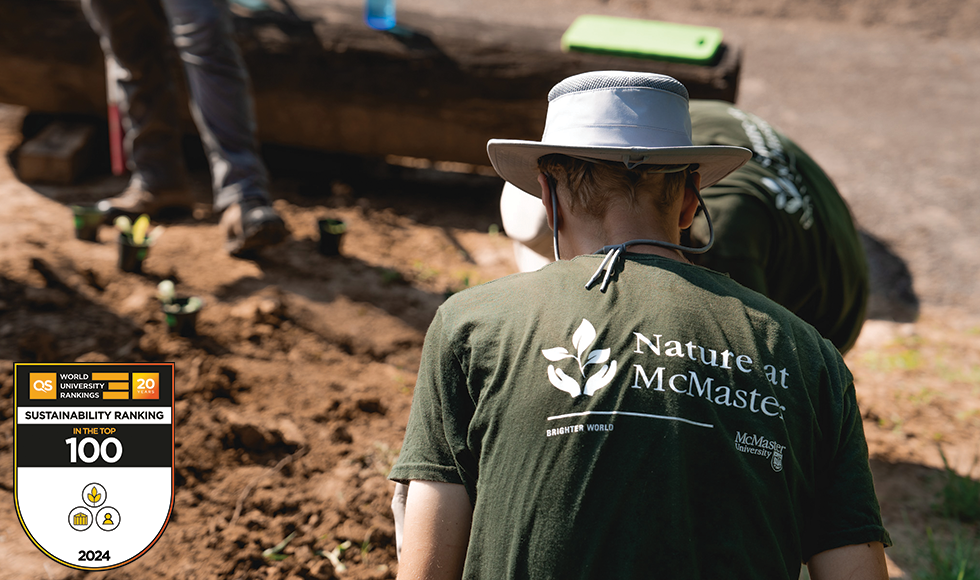McMaster ranks among world’s best for sustainability

McMaster has ranked 78th in the world in the 2024 QS World University Sustainability Rankings, according to a key publication released earlier today.
Focusing on education, research and sustainability initiatives, this ranking measures the work universities across the world are doing to create a cleaner, greener planet.
Sustainability is an integral part of McMaster’s institutional priorities, and the university has made strides in its Sustainability Strategy. This year, McMaster exceeded its carbon reduction investment targets two years ahead of schedule. Students are actively promoting sustainability through Zero Waste McMaster, while the McMaster Carbon Sink Forest acts as a living lab to store more carbon than it releases, mitigating climate change effects.
“McMaster faculty, staff and students are doing amazing things each and every day to make our communities, both local and global, more sustainable,” says Dave Cano, McMaster’s director of sustainability. “It is heartening to see these efforts recognized, especially as we look toward the future.”
This is the second year that QS has published their sustainability-specific ranking. This year, McMaster moved up an impressive 142 positions to rank 78th globally and 10th nationally. In total, more than 1,400 universities from 95 regions were included in this year’s publication, compared to approximately 700 participants last year.
The World University Sustainability Rankings consider three factors:
- Environmental Impact: Assesses research and alumni contributions to climate change mitigation.
- Social Impact: Measures societal transformation, equity measures, knowledge sharing and graduate outcomes
- Governance: Evaluates hiring practices, research ethics committees, transparent decision-making and student inclusion in the governing body.
“At McMaster, we’re working to find ways to create a world that is healthier, sustainable and more equitable,” says McMaster president and vice-chancellor David Farrar.
“From ground-breaking sustainability research to student initiatives designed to make our communities greener, McMaster faculty, staff and students are rising to meet the challenges the world faces with optimism, hope and resilience.”
Earlier this year, Times Higher Education ranked McMaster 33rd in the world for our commitment to supporting the United Nations’ Sustainable Development Goals, specifically highlighting the work the institution has done to end poverty and hunger, reduce inequalities, improve health and education and build a more sustainable, equitable world.


